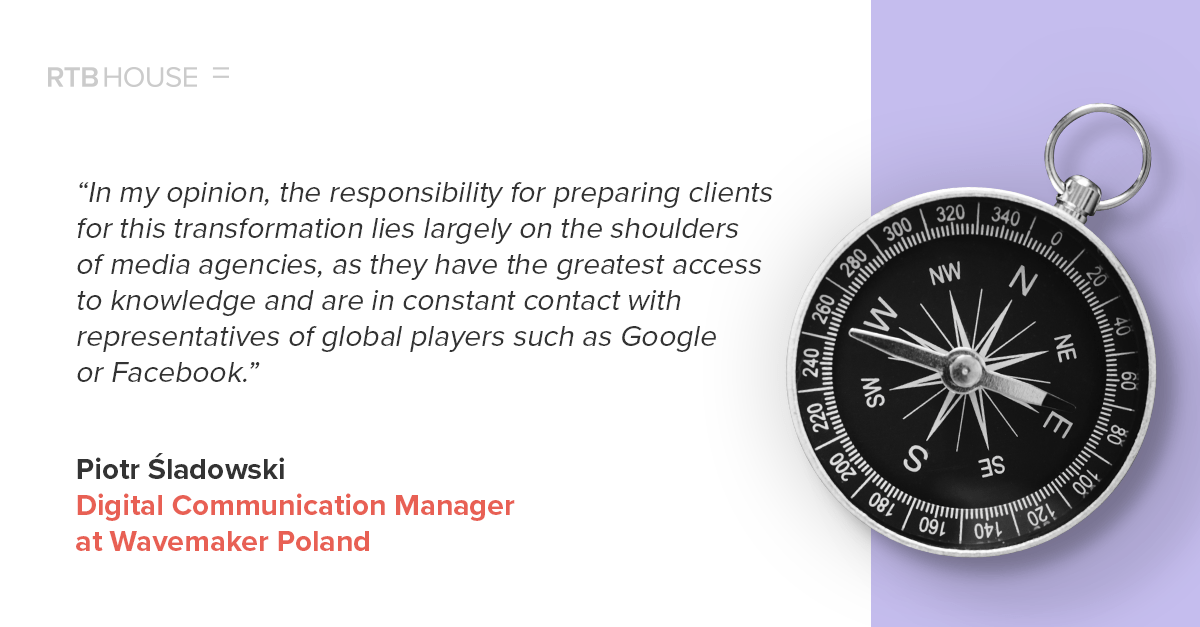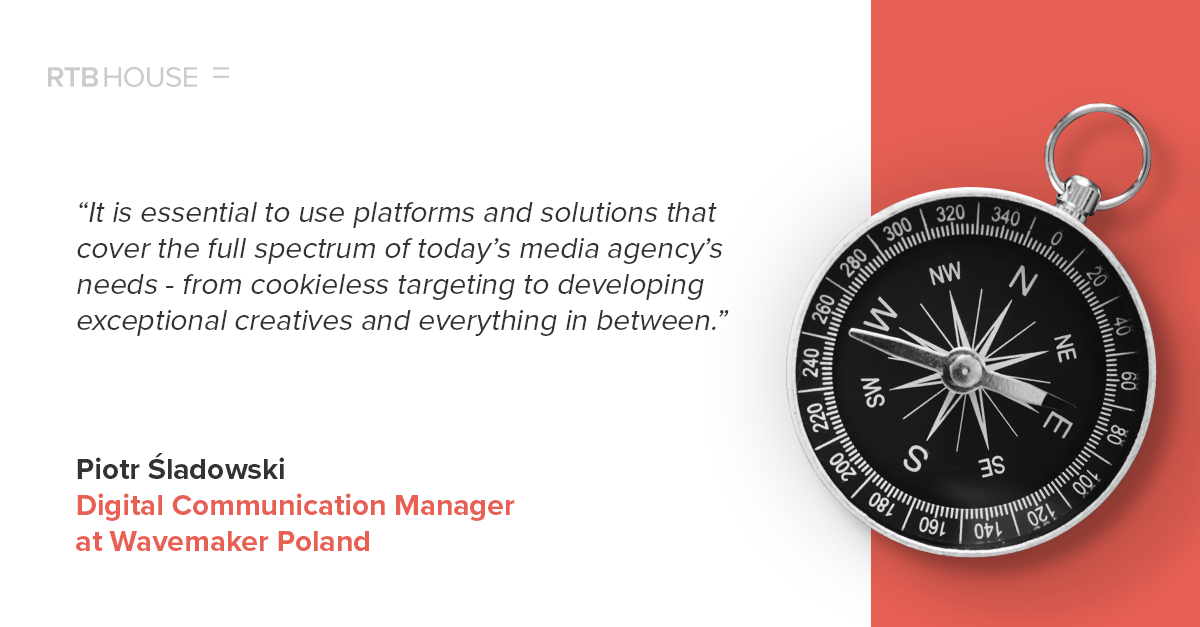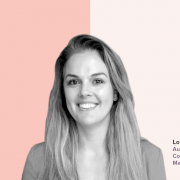Last Updated on: 2nd February 2024, 12:53 pm
By the end of 2023, it will be impossible to use third-party cookies in Chrome which currently commands a 70% market share. The loss of third-party cookies poses challenges for marketers when it comes to tracking and understanding consumers’ online buying behaviors. RTB House spoke to Piotr Śladowski, Digital Communication Manager at Wavemaker Poland, to understand how media agencies are helping brands best prepare for the new era of cookieless digital advertising.
In this article you will learn:
- What challenges for advertisers might the withdrawal of 3rd-party cookies cause
- How do agencies educate and prepare their clients for a cookieless world and its impact
- What opportunities can withdrawing 3rd-party cookies open up for advertisers
Table of Contents:
- Initial reactions
- Knowledge is power
- Setting up for success in a cookieless world
- How RTB House helps agencies like Wavemaker
Initial reactions
At the beginning of 2020, when Google first announced that they were following in the footsteps of Safari and Firefox in blocking third-party cookies in its Chrome browser, the teams at Wavemaker discussed the potential consequences of cookieless advertising with their respective clients. “We approached these first conversations with great caution due to a lack of clarity over exactly what would change and when,” said Śladowski. Six months later, Google postponed the demise of the cookie by 12 months.
The most common reaction among brands in regards to the withdrawal of 3rd-party cookies was an expression of doubt over the future of programmatic which typically accounted for the majority of their digital advertising budget. There were also widespread concerns about how performance would be measured across all channels that relied on cookies – not just programmatic. Śladowski describes Wavemaker’s initial assessment of the potential negative effects as “limited to smaller publishers and local media groups,” adding that “this analysis enabled us to reassure clients that programmatic will remain a safe digital advertising investment. We observe that in some areas, cookies are being replaced by alternative ways of identifying users, such as Facebook API.”
Knowledge is power
In order for agencies to provide the best possible service to their clients, it is important to accurately gauge their level of experience in order to ensure there are no gaps in their knowledge that could lead to confusion when it comes to cookieless advertising. Śladowski describes brands that invest in digital advertising as generally having a good level of understanding of the mechanics of online campaigns and how cookies are used to identify and reach specific audiences.

Wavemaker acts as a trusted advisor and continually provides guidance through the rapid changes that occur in the digital advertising ecosystem with minimal impact. “In my opinion, the responsibility for preparing clients for this transformation lies largely on the shoulders of media agencies, as they have the greatest access to knowledge and are in constant contact with representatives of global players such as Google or Facebook,” said Śladowski.
Setting up for success in a cookieless world
As with any major change, good preparation is the key to success. Based on the work that Wavemaker has done with their clients, Piotr Śladowski has these tips for brands. Firstly, it is imperative to ensure that you have a diversified online presence, including subtle, non-intrusive activities. “Testing content, native advertising, and innovative engagements with influencers ensures brands are not dependent on channels that rely on third-party cookies to deliver sales,” said Śladowski.
Continued education and knowledge sharing is also vital for the continued success of digital advertising in a cookieless future. Wavemaker conducts regular workshops and conferences where specialists talk about the impact of the upcoming changes and share best practices. These conferences are designed to disperse knowledge on cookieless advertising and further the industry as a whole rather than fall into the trap of operating in a silo.
Instead of looking at the removal of third-party cookies as a threat, Śladowski sees it as an opportunity to “look at the digital world more broadly and pay more attention to consumer experiences, data quality, privacy protection, and online brand safety.” As an industry, the best thing we can do today is forget the motivation behind Google’s decision – whatever that may be – and focus on how we can add value to consumers and increase their sense of security and subjectivity online.
How RTB House helps agencies like Wavemaker
Technology platforms offer agencies a wealth of opportunities to optimize digital advertising through more efficient workflows, automation, and the application of cutting-edge technology such as Deep Learning. “It is essential to use platforms and solutions that cover the full spectrum of today’s media agency’s needs – from cookieless targeting to developing exceptional creatives and everything in between,” said Śladowski.
Whatever the industry throws at us in the future, we need to ensure that marketers are prepared to embrace change, discover the opportunities, solve potential problems before they occur, and above all work together towards a common goal.
If you have any questions, comments or issues, or you’re interested in meeting with us, please get in touch.
















